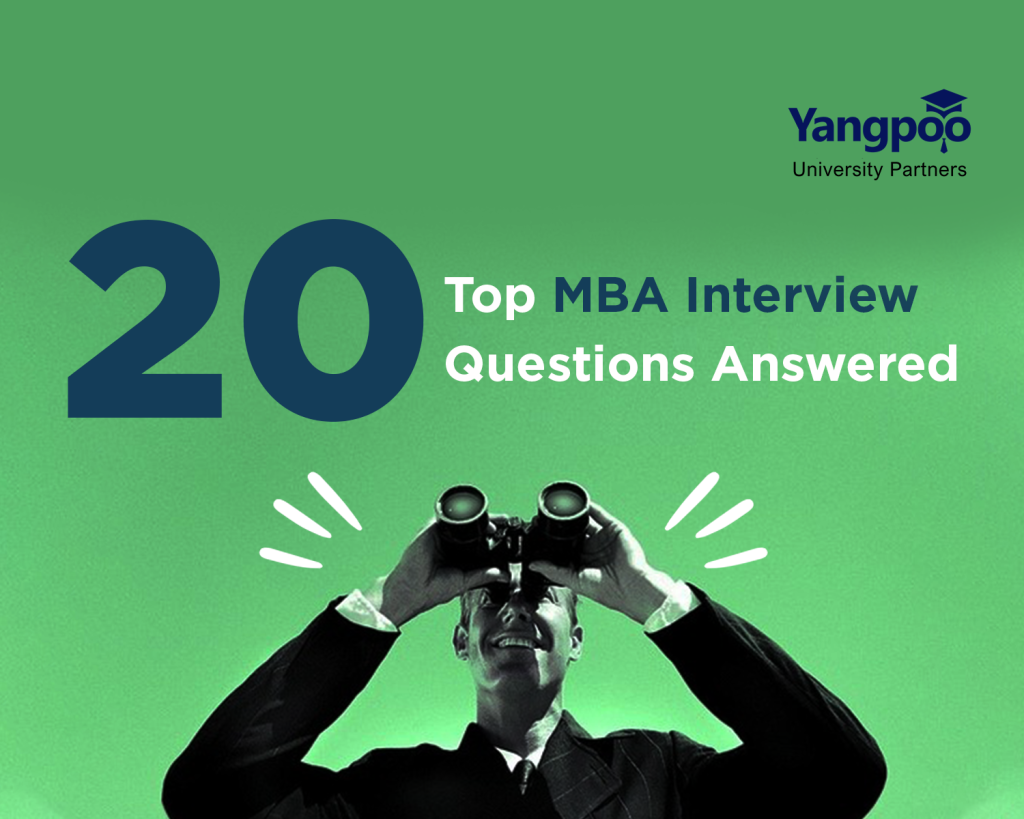The MBA interview is a milestone on your business school journey. To ace the interview and get into your dream program requires hard work. This post will give you the resources to answer common MBA interview questions and present yourself well.
Preparing for life after your MBA and what your target schools expect from you– we’ll cover everything you need to know to get through this process. By the end of this guide you’ll be ready to make your mark and get into an MBA program.
20 MBA Interview Questions
Planning for post graduation in MBA requires preparing for your MBA interview and knowing the questions that will be asked during the discussion. This list covers the topics interviewers usually touch upon. With practice you can showcase your expertise and fit for the program you are applying to.
Key Areas:
- Motivation and Goals: Why MBA? Career goals, long term goals.
- Academic Background: Undergraduate studies, strengths, weaknesses, academic challenges.
- Work Experience: Roles, responsibilities, achievements, lessons learned.
- Leadership: Examples of leadership, teamwork, problem solving.
- Case Studies: Problem solving, analytical skills, decision making.
- Fit with the Program: Why the chosen program, alignment with goals.
- Current Affairs: Awareness of global events and business trends.
- Behavioral Questions: Situational and behavioral scenarios to assess skills.
- Ethics and Values: Personal beliefs and how they align with the program’s values.
- Question for the Interviewer: Show interest and engagement.
Let’s get into these MBA questions and answers and craft good answers.
-
Tell Me About Yourself –
The “Tell me about yourself” question is an icebreaker in MBA interviews. It’s your chance to introduce yourself and showcase your key strengths and experiences.
Why this question is asked: Interviewers want to know about your personality, background and career goals. They’re looking for a concise and interesting summary of you.
- Keep it short: 2-3 minutes.
- Highlight: Education, work experience, career goals.
- Quantify: Use numbers to show achievements.
- Show enthusiasm: Express your interest in doing an MBA.
SAMPLE ANSWER –
“Hello, I’m Ahaana and I work as an Asst. Marketing Manager at TheClothingCo. I have 2 years of experience in Marketing Management where I have developed skills in brand marketing and product marketing. Personally I love connecting with the audience and bringing the most creative ideas to the table.
I have led several big projects in my current role including a project with Myntra. This has honed my leadership skills and made me more interested in Retail Marketing & Merchandising.”
-
Why Do You Want to Pursue an MBA?
The “Why MBA?” question is a cornerstone of an MBA interview. It’s your chance to showcase your passion, goals, and how an MBA aligns with your career aspirations.
Key points to consider:
- Be specific: Avoid generic answers. Clearly articulate your reasons, backed by personal experiences and career goals.
- Connect to the program: Research the program’s strengths and align your motivations with its offerings.
- Highlight your unique value: Explain how your experiences and skills make you a valuable addition to the program.
SAMPLE RESPONSE –
“My long-term goal is to transition into a role where I can influence the strategic direction of a global company, particularly in the fashion sector. I believe that by acquiring advanced business management skills, I can effectively bridge the gap between my current operational expertise and the strategic leadership abilities required for such roles.
Given the evolving landscape of the Fashion & Apparel industry, now is the perfect time for me to pursue an MBA. I’ve gained substantial experience in this area, and I’m eager to build on this by developing a stronger foundation in the marketing department. Additionally, the timing aligns with the growth phase of my career, where the insights and network from an MBA will be most impactful.”
-
Why Did You Choose This School or University?
This question is to test your alignment with the school’s values and programs. Show specific knowledge of the institution’s unique offerings and how they fit with your career goals.
SAMPLE ANSWER –
“I am interested in Great Business School’s MBA program because of its emphasis on entrepreneurship, innovation, and leadership development. The opportunity to learn from renowned faculty and participate in International exchange programs & leadership workshops. That excites me. I think this program fits well with my career goals.”.
-
What Are Your Career Goals?
Your chance to showcase your aspirations and how the MBA fits with your career.
Tips:
- Be Specific: Don’t be vague. Mention specific roles and industries.
- Research the Program: Align your goals with the program’s strengths and alumni success stories.
- Connect the Dots: Explain how the MBA will bridge the gap between your current experience and future aspirations.
SAMPLE ANSWER –
“By doing an MBA, I want to not only fast track my career but also contribute to the broader business community by driving innovation in emerging markets & leading sustainable business practices. I am sure the skills and experiences I will gain from this program will enable me to make a meaningful impact in my future roles.”
-
What Are Your Strengths and Weaknesses?
One of the most common MBA interview questions is, “What are your strengths and weaknesses?” This question helps the interviewer to assess your self awareness, honesty and ability to learn from your experiences.
Tips:
- Be Honest: Authenticity is important. Choose strengths that are real and backed by examples.
- Highlight Relevant Strengths: Focus on strengths that fit with the MBA program and your career goals.
- Address Weaknesses Constructively: Acknowledge areas for improvement and how you are working on it.
Sample Strengths:
- Analytical skills
- Communication and interpersonal skills
- Team work
- Problem solving and critical thinking
- Adaptability and resilience
Sample Weaknesses:
- Perfectionism (I will manage it)
- Difficulty delegating (I will work on it)
- Overcommitting (I will improve time management)
Remember, the idea is to show your self awareness and commitment to growth. By being honest and thoughtful in your answers, you can demonstrate your potential for the MBA program.
SAMPLE ANSWER –
“My biggest strength is my ability to lead cross functional teams. In my role as [Your Job Title], I have led several projects where I had to bring together people from different departments to achieve a common goal. For example, during a recent product launch, I managed the marketing, sales and product development teams to ensure a smooth roll out. This not only helped the product to enter the market better but also boosted team morale by bringing together departments.”
“I also know that public speaking is not my strength. While I am comfortable in small team settings, presenting to larger groups has been a challenge for me. To address this, I have enrolled in a public speaking course and have been actively looking for opportunities to present in front of larger audiences. This has helped me to build more confidence in my speaking abilities.”
-
Describe a Challenge You’ve Overcome.
When asked about a challenge you’ve overcome, interviewers want to assess your problem solving skills, adaptability and determination. Choose a situation that highlights your ability to think critically, analyze obstacles and develop effective solutions.
Example Scenario:
Challenge: Leading a cross functional team to meet a tight deadline despite unexpected setbacks.
Response: “During a recent project, our team faced unexpected challenges that threatened to derail our timeline. I took the initiative to re-evaluate our strategy, reallocate resources and implement efficient processes. By fostering collaboration and communication, we were able to overcome the obstacles and deliver the project on time.”
Remember to mention the specific steps you took to address the challenge, the skills you applied and the positive outcome. This shows you can navigate adversity and deliver results.
SAMPLE ANSWER –
“While managing a project at TablesFables Company, our lead developer left midway, putting our software launch deadline at risk. I quickly assessed our team’s capabilities and brought in a temporary contractor to fill the gap. We also redistributed tasks among the team and increased communication to stay on track.
We met the deadline and the software launch was well received by clients. This experience taught me the importance of adaptability, teamwork and strong communication in overcoming challenges.”
-
How Do You Handle Conflict in a Team?
The ability to handle conflict is an essential skill for any MBA candidate. When asked about your conflict resolution strategies, highlight your teamwork skills, willingness to compromise and ability to find common ground.
Key Points to Highlight:
- Active Listening: Show you can understand different perspectives and find common ground.
- Open Communication: Emphasize you can express your views clearly and respectfully.
- Problem Solving: Showcase you can identify root causes and find mutually beneficial solutions.
- Compromise and Collaboration: Highlight you will work towards win-win outcomes.
SAMPLE RESPONSE –
“In any team setting, conflicts are inevitable, and I see them as opportunities to improve communication and collaboration. Recently, while leading a project, two team members had differing opinions on the approach to a critical task. I made sure to remain calm and approached the situation objectively, understanding that both perspectives had merit. My first step was to bring the team together for a discussion. I facilitated an open conversation where each person could share their viewpoint without interruption. This helped us all understand the underlying concerns and motivations behind their differing opinions. Once we identified the root of the conflict, I helped the team find common ground by focusing on our shared goal: delivering a successful project. We brainstormed together to find a solution that incorporated the best elements of both approaches. By involving everyone in the decision-making process, we developed a strategy that everyone could support. This not only resolved the conflict but also strengthened the team’s sense of collaboration.”
-
What Do You Like About Your Current Job? (If applicable)
This MBA question is trying to understand your current job and what gives you fulfillment.
Think about:
- What skills do you use daily? Do they match your career goals?
- What are the challenges you face? How do you overcome them?
- What motivates you to do well in your job? Is it recognition, problem solving or something else?
SAMPLE ANSWER –
“In my current role as a Project Assistant at Welcome Events I like the variety of projects I get to work on that challenge me and allow me to develop new skills. For example I like the fast paced nature of my role which requires me to be adaptable and think on my feet.”
“I find it rewarding to collaborate with cross-functional teams, as it provides a chance to learn from different perspectives and contribute to innovative solutions. Additionally, I enjoy leading projects and seeing them through from conception to completion, which gives me a strong sense of accomplishment.”
-
How Would You Characterize Your Leadership Approach?
Take a moment to reflect on how you lead teams, make choices and inspire those around you. Here are some questions to ponder.
- How do you motivate and inspire your team?
- What is your decision-making process?
- How do you handle conflict and challenges?
SAMPLE RESPONSE –
“I take an approach to leadership that focuses on teamwork and uplifting others. I strive to foster a space where everyone feels appreciated and driven to give their best. A case in point is when I was in charge of a project team at Hydracosmetics. I promoted communication and made it a point to gather input from all team members. During a crucial stage of the project I organized brainstorming sessions to collect viewpoints that resulted in creative solutions and enhanced involvement within the team.”
-
Can You Discuss a Time When You Failed?
Being able to learn from mistakes is a skill that can greatly benefit your professional journey. When sharing an experience of failure emphasize the insights gained, the ways you bounced back from the challenge and the personal development it sparked.
SAMPLE RESPONSE –
“I took charge of a marketing campaign that unfortunately didn’t hit our targets. Despite putting in hard work the campaign didn’t connect with our intended audience and missed its objectives. At first I felt down about it but I recognised the importance of figuring out what went wrong. Upon reviewing the campaign I discovered that our market research was lacking and we hadn’t completely tailored the campaign to meet our audiences needs. This setback affected our quarterly performance and taught me lessons about the significance of conducting research and aligning strategies with audience insights.
To tackle this issue I took the lead in conducting an analysis of the campaign. I worked together with the team to create a research approach and introduced more thorough testing for future campaigns. This experience also motivated me to pursue training in market analysis and strategic planning. Consequently subsequent campaigns demonstrated notable enhancements in performance metrics and our team became more skilled at devising targeted strategies. This setback taught me the significance of learning from errors and continuously refining my methods to ensure improved results, in the future.”
-
How Would an MBA Help You Advance in Your Career?
When discussing how an MBA will propel your career forward, tailor your response to align with your specific goals.
Consider these aspects-
- Industry Relevance Does the MBA program offer specializations that align with your target sector?
- Skill Acquisition What skills will you acquire that are crucial for the positions you aspire to?
- Networking Prospects How will the program assist you in establishing connections?
- Career Support: What resources does the institution offer for job placement and career growth?
SAMPLE RESPONSE –
“The challenging classes and practical assignments will provide me with the skills and leadership strategies needed to address intricate business problems. Furthermore, engaging in real life case studies and attending leadership training sessions will strengthen my critical thinking and judgment skills.”
-
How Do You Make the Most of Your Resources?
In today’s competitive environment showcasing resourcefulness and efficiency is crucial.
When addressing this question emphasize your capacity to-
- Manage tasks efficiently and distribute resources appropriately.
- Make use of tools and technology to streamline procedures.
- Approach challenges with creativity and discover novel solutions.
- Work collaboratively with others to harness shared resources.
SAMPLE RESPONSE –
“I view feedback, whether positive or negative, as a chance to enhance my skills and knowledge. When I receive criticism I take the time to reflect on it and assess its validity. Instead of reacting defensively I try to approach it with an open mind and see it as an opportunity to learn. For instance there was a time when I received feedback on my presentation style. While it was initially difficult to hear, I recognized the value in it. I took the suggestions to heart and worked on improving my delivery and engaging with the audience more effectively. As a result I noticed a positive impact on my future presentations and received compliments for my progress. Overall I believe that embracing feedback and using it as a tool for growth is essential for personal and professional development.”
SAMPLE RESPONSE –
“My manager gave me some input about enhancing my presentation abilities. The feedback pointed out that my presentations tended to be overly detailed and lacked enough engagement for the audience. I valued this feedback and saw it as a chance to develop myself. To start I looked for training in presentation skills and participated in workshops centered on public speaking and effective communication.”
13. Describe Feedback or Criticisms You’ve Received and How You Responded
Things to Consider While Answering this question-
- Be Honest and Specific: Provide a genuine example of feedback or criticism you’ve received. Be as specific as possible about the situation, the feedback, and your response.
- Focus on Growth: Emphasize how you used the feedback as an opportunity for growth and development. Show that you were able to learn from the experience and improve your skills.
- Demonstrate Self-Awareness: Show that you were able to recognize the validity of the feedback and understand the areas where you needed to improve.
- Explain Your Actions: Clearly describe the steps you took to address the feedback. Be specific about the changes you made to your behavior or approach.
- Highlight Positive Outcomes: Show how your response to the feedback led to positive results, such as improved performance, stronger relationships, or increased efficiency.
- Maintain a Positive Tone: Even if the feedback was negative, maintain a positive tone throughout your response. Focus on the learning experience and your ability to adapt and grow.
SAMPLE RESPONSE –
“At my last workplace, I received feedback from my manager that I could improve my time management skills. Initially, I was a bit defensive, but I realized that this was constructive criticism meant to help me excel in my role. I took the time to reflect on my work habits and identified areas where I could be more efficient.
To address this feedback, I implemented a few strategies. First, I started using a time-tracking tool to understand how I was spending my time. This helped me identify time-wasting activities and prioritize tasks more effectively. Second, I learned to say “no” to additional projects when my workload was already full. This helped me manage my time more efficiently and prevent burnout.
Thanks to this feedback and the steps I took to address it, I was able to significantly improve my time management skills. I became more organized, met deadlines more consistently, and even had more time to focus on other aspects of my work.”
14. How Do You Manage Work-Life Balance?
Maintaining a balance between work and life is crucial for both your well being and professional growth.
Here are some tips to help you achieve it:
- Prioritize your tasks by distinguishing between important and less important ones to manage your workload efficiently.
- Set boundaries by defining clear separations, between your work and personal time. Utilize management methods such as the Pomodoro Technique or time blocking to enhance your productivity.
- Delegate responsibilities whenever possible to free up time and alleviate stress.
- Lastly remember to engage in self care activities that bring you joy to recharge and avoid burnout.
SAMPLE RESPONSE –
“I make sure to set clear work hours and stick to them as best as I can. For example I focus on getting work done during the day and I try not to check emails or take work calls when I’m off duty. To keep track of both my work and personal commitments I rely on a calendar and task management apps. This allows me to prioritize tasks and manage my time efficiently so that I can meet deadlines while still making room for personal activities and downtime.”
15. What Would You Consider Your Most Significant Accomplishment?
When responding to this question, highlight a particular achievement that showcases your talents, successes and contributions.
Select an achievement that resonates with your aspirations and highlights your strengths in a favorable way.
SAMPLE RESPONSE –
“One of my achievements in my career was successfully turning around a struggling product launch at Hobspot Shoes. The product was not performing well and we faced challenges such as deadlines and budget limitations. To address this I started by conducting a market analysis to pinpoint issues and gather insights. With this information I redefined the product’s value proposition and collaborated with the development and marketing teams to redesign the product and fine tune our messaging. Additionally I rolled out a marketing campaign to better connect with our target audience. These initiatives led to a re-launch of the product resulting in a 30% boost in sales within the first quarter and positive customer feedback. This turnaround not only improved our revenue but also elevated the product’s reputation in the market.”
16. How Do You Handle Pressure and Deadlines?
Handling stress and meeting deadlines is crucial for achieving success in any profession.
Here are some strategies to consider Prioritization Determine and concentrate on the tasks that hold the greatest importance-
- Time management: Employ methods such as the Pomodoro Technique or time blocking to boost efficiency.
- Communication: Keep your team and stakeholders updated on advancements and potential obstacles.
- Task breakdown: Split projects into smaller, more manageable components.
- Support: Don’t hesitate to reach out for assistance or resources when necessary.
SAMPLE RESPONSE –
“First, I assess and prioritize tasks based on their importance and deadlines. I use tools like to-do lists and project management software to break down complex projects into manageable steps and focus on high-priority tasks first. To manage stress, I practice techniques such as mindfulness and deep-breathing exercises. Staying calm helps me maintain focus and make clear decisions, even under pressure. I also make sure to take short breaks to recharge and avoid burnout.”
17. What Would You Do If You Failed in Obtaining Your Chosen Goal After Your MBA?
Even with the best-laid plans, setbacks can occur. When discussing potential failures, demonstrate your resilience and adaptability. Highlight how you would approach challenges and explore alternative paths.
SAMPLE RESPONSE –
“If I were to face a setback in achieving my goal after completing my MBA I would approach the situation with resilience and a mindset. Instead of dwelling on the failure I would take it as an opportunity to learn and grow. I would assess what went wrong, identify the lessons learned and use that knowledge to adapt my approach moving forward. Challenges are a part of life and I believe that staying flexible and open to new possibilities is key. I would explore alternative paths, seek advice from mentors and colleagues and leverage my skills and network to navigate through the situation. Ultimately I see failure not as an end but as a stepping stone towards success.”
18. What Are Your Thoughts on Ethical Leadership?
Ethical leadership plays a role in establishing trust creating a workplace atmosphere and motivating employees. Leaders who prioritize integrity, fairness and transparency in their choices set a solid standard for their teams encouraging conduct and nurturing a culture of trust.
SAMPLE RESPONSE –
“Ethical leaders earn trust and credibility by consistently being honest and transparent in their actions. For instance when faced with decisions they openly share the reasons behind their choices creating an atmosphere of trust and respect. Over time ethical leadership plays a role in achieving lasting success.”
Organizations led by leaders are more likely to establish strong reputations, attract top talent and maintain positive relationships with stakeholders that are essential for long term growth and success.
We encourage you to bring up any inquiries you may have about the school or the MBA program. Here are a few examples of questions you might want to consider.
19. Do you have any questions or concerns regarding the school or program?
We encourage you to ask any questions you may have about the school or the MBA program. Here are some examples of questions you might consider:
- What core courses and elective options are offered?
- Are there any specialized tracks or concentrations available?
- Faculty and Mentorship Who are the faculty members and what expertise do they bring?
- Does the program provide mentorship opportunities?
- Career Services: What career services and placement assistance are accessible to students?”
- Campus Environment: How would you describe the atmosphere and student experiences on campus?
- Are there chances to connect with others and participate in activities outside of academics?
- Funding Support: Are there scholarships, grants or assistance programs offered?
SAMPLE RESPONSE –
I’m keen to learn about how adaptable the curriculum is. Can I customize the courses to align with my career aspirations or personal interests? Also what sets this program apart from other MBA offerings in terms of its distinctive features?
20. Do You Have Any Questions for Us?
- At the conclusion of the interview you’ll usually have the chance to pose some questions. This is an opportunity for you to showcase your genuine interest in the program and to illustrate that you’ve conducted your homework.
Here are a few inquiries you might want to think about-
- Curriculum and Specialization: Could you provide more details about the program’s emphasis on a specific area of interest?
- How does the curriculum equip students for careers in the industry?
- Faculty and Mentorship: Who are some of the faculty members involved in the program?
- Are there chances for mentorship or personalized guidance?
- Student Life and Culture: How would you describe the campus culture?
- Are there opportunities for networking, extracurricular activities and student organizations?
- Career Services: Could you share more about the services provided by the school such as job placement support and alumni networking?
- Recent Trends: How is the program adjusting to the latest trends and advancements in the business realm?
By posing questions you show your active involvement and excitement, towards the program.
SAMPLE RESPONSE –
“Could you share information regarding the mandatory classes and available elective choices? Are there any fresh or upcoming courses that stand out as particularly interesting? How does the program keep its faculty up to date with the latest trends and practices in the industry? Are there any distinguished alumni who have made significant career advancements or who actively participate in the program in a meaningful manner?”
Tips for Answering MBA Interview Questions –
- Structure Your Answers:
Utilize the STAR approach to shape your replies by outlining the Situation, Task, Action and Outcome. This structure aids in arranging your ideas and offering tangible illustrations. Be detailed in your examples to enhance clarity and leave a lasting impression. Whenever feasible, quantify your achievements to showcase your influence.
- Practice Makes Perfect:
Simulated Interviews: Engage in simulated interviews with friends, relatives or career advisors to rehearse your answers and pinpoint areas that need enhancement.
Capture Yourself: Film your practice interviews to assess your gestures, vocal tone and overall presentation.
Request Input: Solicit feedback from your mock interviewers to recognize aspects that could be improved upon.
- Tailor Your Responses:
Investigate the Institution: Get a grasp of the school’s principles, goals and areas of specialization
Customize Your Responses: Adjust your answers to showcase how your abilities and background align with the program’s needs.
Express Passion: Communicate your sincere enthusiasm for the program and your dedication to achieving success. By implementing these suggestions and rehearsing your replies you’ll be ready to excel in your MBA interviews and secure a spot in your desired program.
- Show Enthusiasm: Convey your genuine interest in the program and your commitment to succeeding.
By following these tips and practicing your responses, you’ll be well-prepared to ace your MBA interviews and secure your dream program.
Common Mistakes to Avoid During an MBA Interview
To ensure a successful MBA interview, it’s essential to be aware of common mistakes and avoid them. Here are some key pitfalls to watch out for:
- Lack of Research: Avoid appearing unprepared by thoroughly researching the school, program, and faculty.
- Generic Responses: Tailor your answers to the specific program and demonstrate your knowledge.
- Overconfidence: Avoid coming across as arrogant or dismissive. Be humble and open to learning.
- Negative Comments: Refrain from speaking negatively about previous employers or experiences.
- Lack of Enthusiasm: Show genuine interest in the program and your career goals.
- Technical Difficulties: Ensure your technology is functioning properly and test your connection beforehand.
By avoiding these common pitfalls and practicing your responses, you can increase your chances of a successful MBA interview.
Explore MBA Degrees from Top Universities at Yangpoo
At Yangpoo, we offer access to top MBA degrees from leading universities worldwide, designed to provide you with the skills and knowledge needed to excel in today’s dynamic business landscape.
In conclusion, the MBA interview is a crucial step in your journey to business school. By preparing thoroughly, understanding common questions, and practicing your responses, you can increase your chances of making a positive impression and securing your desired program. Remember, the key to a successful interview is to be well-prepared, authentic, and enthusiastic.
FAQs:
-
What type of questions are asked in an MBA interview?
MBA interviews typically focus on assessing your motivation, skills, and fit with the program. Expect questions about your career goals, leadership experiences, problem-solving abilities, and understanding of the business world. Be prepared to discuss your academic background, work experience, and reasons for pursuing an MBA.
-
How to prepare for an interview for an MBA?
To prepare for an MBA interview, research the program and its faculty, practice common interview questions, and showcase your knowledge and enthusiasm. Focus on your career goals, highlight your achievements, and demonstrate your fit with the program. Remember, preparation, confidence, and authenticity are key to a successful interview.
-
How do I stand out in an MBA interview?
To stand out in an MBA interview, showcase your passion, articulate your goals clearly, and demonstrate your unique value proposition. Highlight your relevant experiences, skills, and how an MBA will help you achieve your career aspirations. Prepare insightful questions to show your interest in the program and differentiate yourself from other applicants.
-
How can I make a good impression in an MBA interview?
To make a lasting impression in your MBA interview, be prepared, enthusiastic, and authentic. Thoroughly research the school and program to demonstrate your knowledge and interest. Practice common interview questions to ensure you deliver confident and insightful responses. Highlight your unique qualifications and how they align with the program’s goals. Ask thoughtful questions to show your engagement and enthusiasm. Remember, a strong first impression can significantly impact your chances of admission.
-
What should I do after an MBA interview?
Following up with a thank-you note is a crucial step after an MBA interview. Express your gratitude to the interviewer for their time and reiterate your interest in the program. You can also use this opportunity to highlight any specific points discussed during the interview or ask any additional questions. Remember, a well-crafted thank-you note can leave a positive impression and increase your chances of admission.





